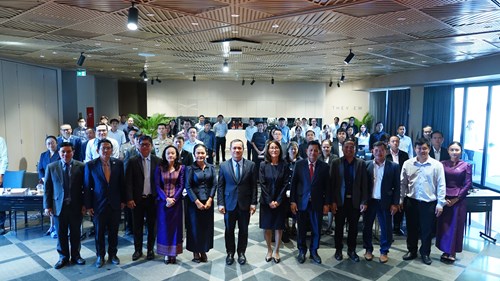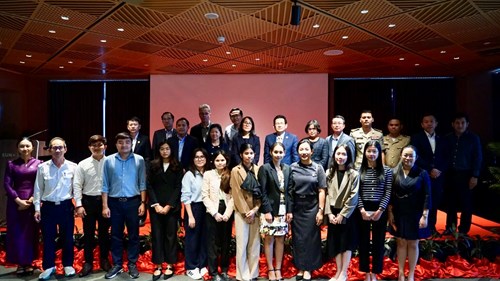Cambodia has taken another significant step to introduce a draft law governing trade secrets, aligning itself with international obligations under the TRIPS Agreement. On 18 February 2025, the Department of Intellectual Property Rights (DIPR) of the Ministry of Commerce (MoC) hosted a National Seminar on Trade Secrets to present the draft Law on Trade Secrets.


Phengchhay joined a seminar on the introduction of the draft law governing trade secrets on 18 February 2025 at the Department of Intellectual Property Rights (DIPR) of the Cambodian Ministry of Commerce (MoC).
While trade marks, patents, and copyrights are governed by their respective legislation, trade secrets remain in legal grey areas and lack statutory protection. This absence of a law on trade secrets in Cambodia has potentially created uncertainties regarding legal protection for companies' trade secrets, hindering businesses' ability to maintain their competitive edge. Therefore, businesses in Cambodia must rely on contractual agreements among employees to secure confidential business information, internal processes, and customer data.
The draft Law on Trade Secrets aims to clarify the scope of legal protection, define the conduct related to trade secrets, and provide provisions for dispute resolution. The introduction of the draft law is not only a domestic necessity for Cambodia but also reflects a further step in aligning its standards with regional trade secrets protections, such as those in Thailand and Vietnam, as well as with international obligations under the TRIPS Agreement.
As Cambodia moves forward in finalizing the Trade Secrets Law, businesses should consider auditing their internal trade secrets, including but not limited to identifying strictly confidential information, reviewing contractual agreements with employees and business partners, and staying informed of any legal developments to ensure compliance once the law is enacted.
Please stay tuned for further updates as we share more information on this landmark legislation as it progresses toward implementation. For any assistance or inquiries, please contact us at TMGCambodia@rouse.com.
Authors: Monyrak Phang, Phengchhay Ing